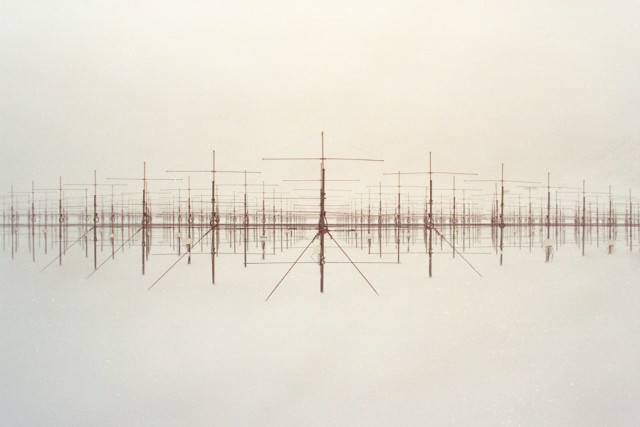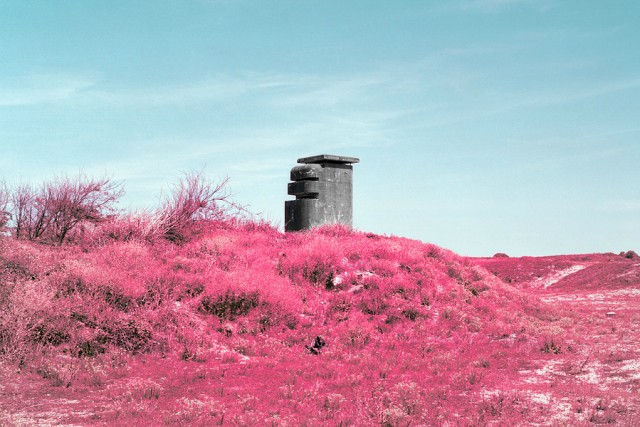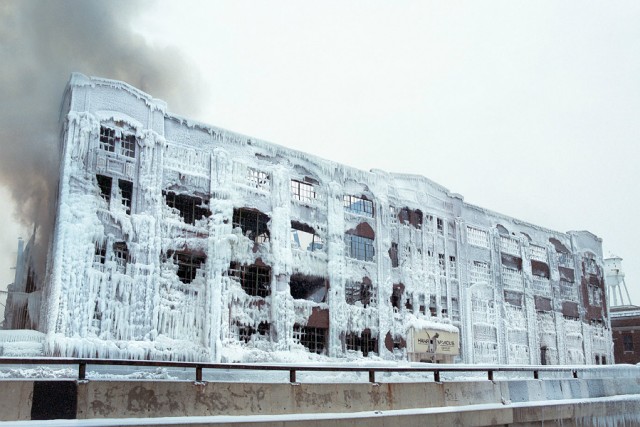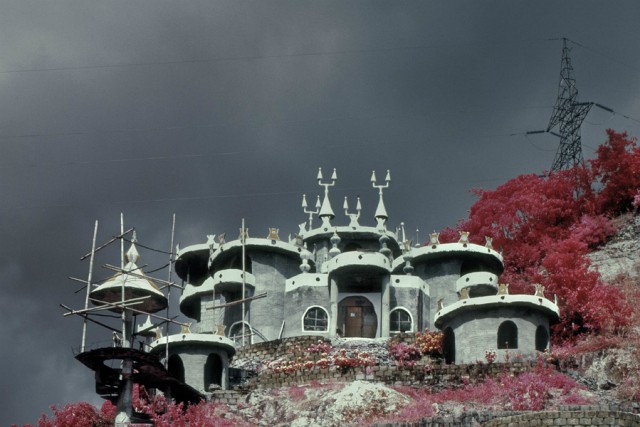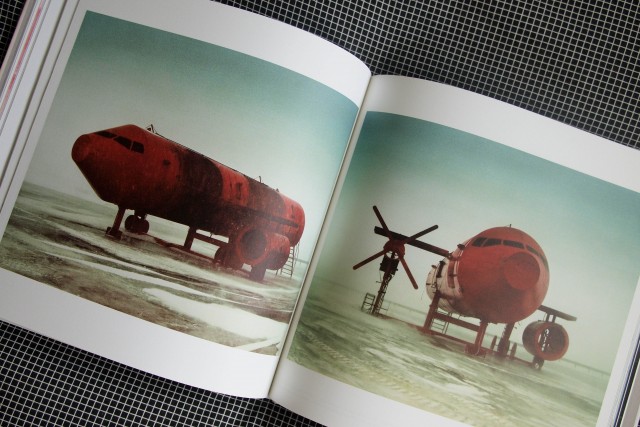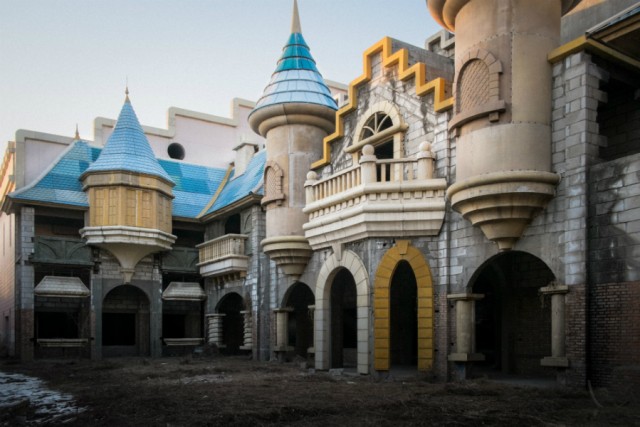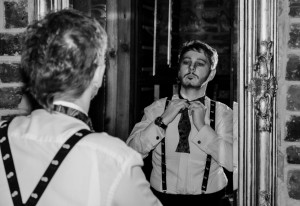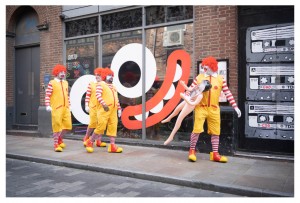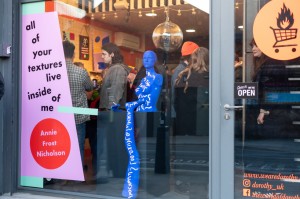Artist of the Month:
Reuben Wu
We sat down with new Artist of the Month Reuben Wu to talk inspirations, serendipity and the fine line between reality and non-reality…
Usually when an established musician/actor/director (commonly a musician) makes noises about moving into the realms of a new creative pursuit outside of their expertise, the reaction – often with good cause – is one of cynicism.
Fortunate then that the work of our latest Artist of the Month, photographer Reuben Wu (otherwise best known to us as one quarter of the band Ladytron), draws no such cause for concern at misguided attempts of reinvention.
In fact, says Reuben, “I’ve been taking snapshots since I was in primary school,” but, he continues, “my main creative passion up until my early twenties (other than music) was drawing.” It’s clear early into our conversation that he was never content with focusing on one thing above all else.
His decision to study design (at Sheffield Hallam University) was born of “an obsession with ‘things’”, he explains. When did this obsession with things manifest itself fully in photography, we ask. “Photography really began on my travels while touring, I decided to use the old Leica M3 my dad gave me.” ‘That must have been nice’, we ventured, enviously. “At first I was reluctant to use such a valuable camera, but it seemed a waste to leave it on the shelf.”
He confides that, “looking back it was an important stage in my development in taking pictures … it took me years to begin to realise what makes a good photo, and also, I take photos for a slightly different reason now.” What is that reason, what inspires his photography now that he and his work are maturing? He says that “like many others” he’s motivated by the pursuit of travel and exploration.
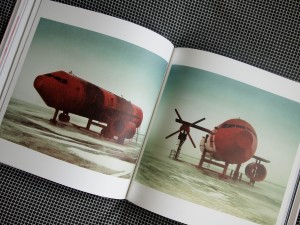
If that puts you in mind of the casual snapper, pointing and clicking, think again. His work is imbued with a congruent sense of the incongruous – it, we suggest (and for want of a better description), is often dominated with a sense of a kind of other-worldliness.
“I am really interested in the fine line between reality and non-reality,” he states, “I think my main motivation in photography is my imagination,” inspired, he says, “by old National Geographic photography, surreal and romantic landscape painters like James Ward and Caspar Friedrich, novelists such as JG Ballard and Philip K Dick and some of the films of David Lynch, Stanley Kubrick and Andrei Tarkovsky.”
Quite the list, especially relevant to his work, at least to our untrained eye, is that latter trio. Indeed, hand in hand with that other-worldliness we mention is an unmistakable widescreen, cinematic element, and he admits to thinking “that … films have definitely honed my senses to look for certain cues in photography”.
His take on his work? “I like anachronistic subjects or processes. Shooting with low-end film in a high-end camera or vice versa, avoiding popular destinations and following my own instinct as to what I want to photograph and explore, allows for the element of serendipity which can be scary but quite exciting.”
While on a recent DJ tour in China, that instinct for the serendipitous was richly rewarded: “I had heard about this half-built abandoned amusement park which was two hours out of Beijing out in the middle of crop fields and so took a day off to make my way over.” The stunning and somehow unsettling results of that trip to the outskirts of Beijing can be seen on our homepage, and tying in nicely to his Ballard reference, are akin to a dystopian vision of Disneyland.
Suitably intrigued, we wondered if he knew anything more about the history of the place – named Wonderland – and its demise. “The site was actually abandoned in the late ’90s after a dispute with the farmers who owned the land. Since then, the partially built buildings have been left standing while the land around it was re-appropriated to growing crops, and the developers have been paying monthly rent to the farmers to this day.
“It was an eerie location. Different to other ruined sites as it never actually fully existed in the first place.” That sense of it never having fully existed chimes with Wu, his photography and by extension, the world. “I’m interested in how artefacts fit in (or not) with surroundings, not only in a physical perspective but also from a human point of view. How the thing has affected the land or how the land has affected it… I think the story behind images are essential.”
Wu discovered and captured the story of the abandoned theme park none too soon; an addendum to its short and strange history coming just a few weeks after he left Beijing. “I learnt that the whole complex had finally been bulldozed – to make way for a shiny new commercial venture.”
While Wonderland is left in ruins, Wu is looking forward, traveling the upward trajectory his photography is taking him on. With a self-published book of his exploits exploring Svalbard, an archipelago 600 miles away from the North Pole, already under his belt, he is preparing for an exhibition in January. Surprised to hear it will be his first, we ask why. “I’ve only recently decided to properly ‘show’ my work.
“I used to be very covert about it and share privately, but I’ve realised that there is nothing like printing and framing my photographs, and why not eventually show the work publicly?” Why not indeed, but humble to the last he expresses surprise at the response, saying “I’m actually delighted that so many people have shown their support.”
You’d think that would be enough to fill his time, but music continues to play a large part in his life: “I’m working on a side project and there is another Ladytron album in the pipeline.” Watch this space.
Find more of Reuben Wu’s work here and here

